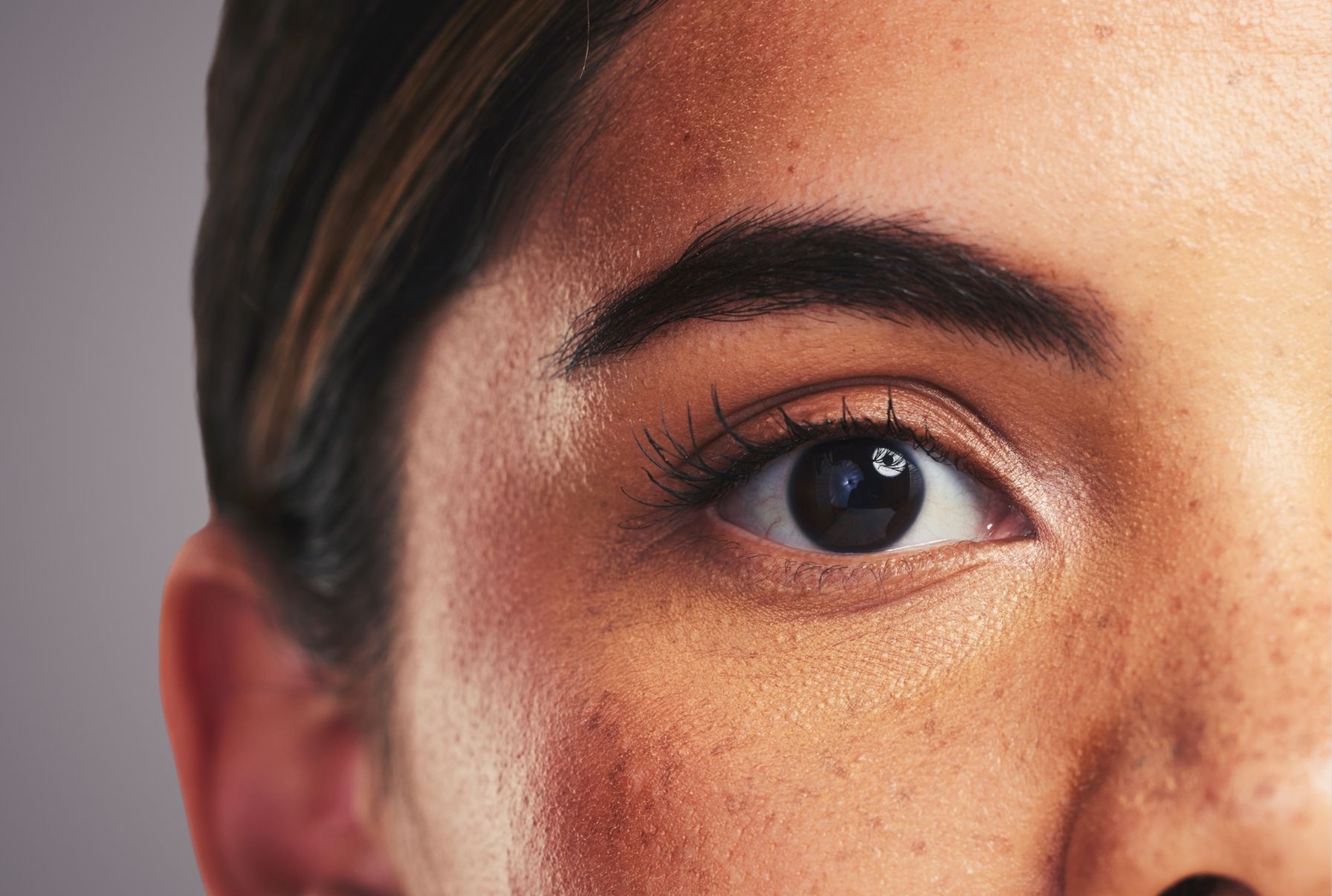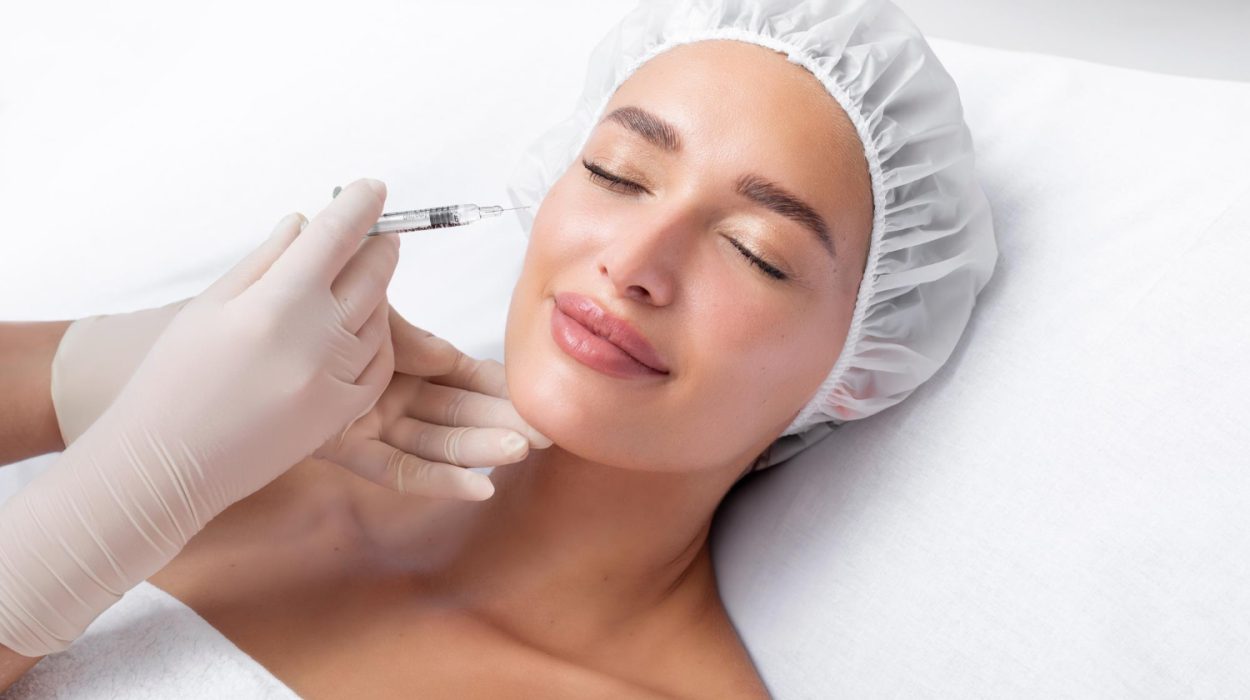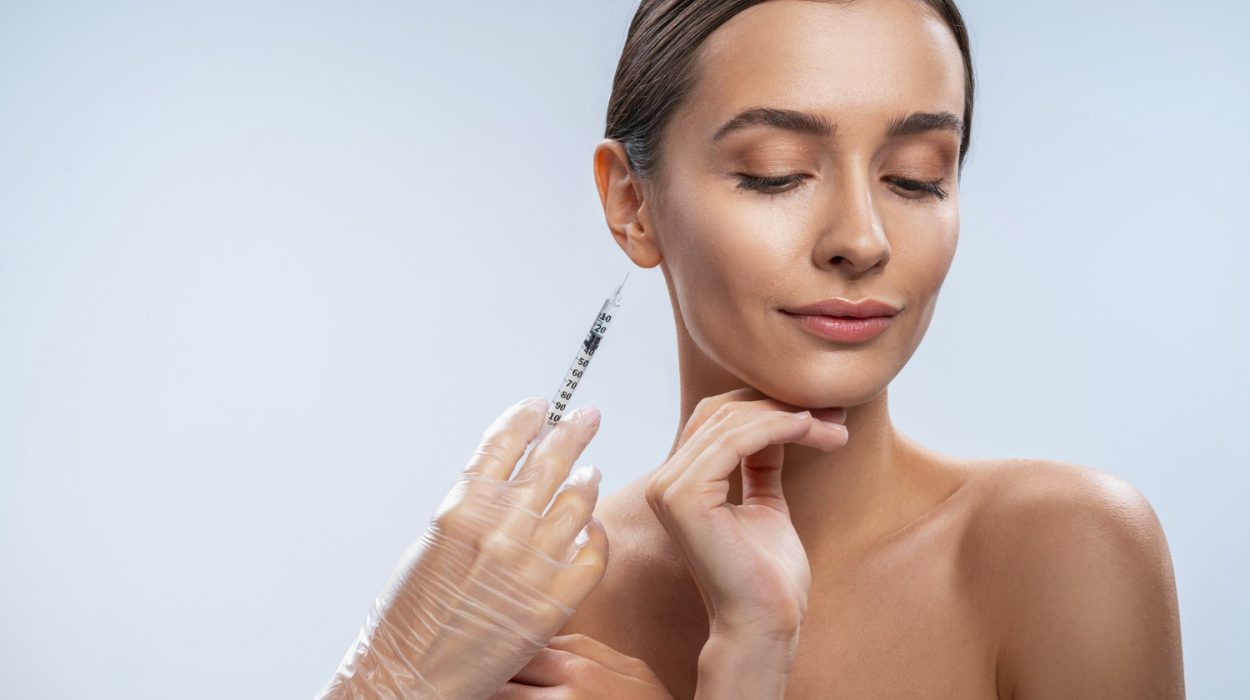Rosacea affects 5% to 6% of the world’s adult population. Though it is a rare disease, for people with rosacea, it is more than a skin condition—it is a daily challenge.
This disorder can affect one’s quality of life, ranging from sudden and unexpected skin redness to persistent irritation.
Rosacea is a chronic skin condition characterised by flushing or long-term facial redness. It may cause enlarged blood vessels and small, pus-filled bumps.
Let’s dive deep into this condition to learn more about what causes rosacea, its symptoms, and how to manage it to get a healthier, happier skin.

Understanding Rosacea: What Causes It?
The exact cause of rosacea is unknown. Several factors, such as genetics, an overactive immune system, or lifestyle factors, may play a role in its development. However, since rosacea is not caused by poor personal hygiene or a microbe, you cannot catch it from another person.
Rosacea is a chronic condition, which means it cannot be cured. But, with the right efforts and measures, the condition can be kept in remission. Flare-ups of rosacea are common and can be caused by trigger factors, such as:
- Sun
- Wind
- Hot or cold foods
- Spicy food
- Alcohol
- Extreme temperatures
- Emotional stress
- Exercise
- Herbal or cosmetic skin and hair products
- Drugs that dilate blood vessels
The symptoms and management of rosacea also depend upon its type. Common types of rosacea are:
Skin discoloration, flushing, and visible blood vessels are common symptoms.
Symptoms of this type of rosacea include flushing the skin and breakouts resembling acne and swelling.
Thick, bumpy skin is a characteristic symptom of rosacea
It is characterised by eye symptoms, such as redness, irritation and swollen eyelids.
Is It Possible to Get Rid of Rosacea Permanently?
Rosacea is a chronic condition that cannot be cured completely. However, several treatments can help manage the redness, irritation, and other symptoms associated with the condition.
Your doctor will determine the best possible treatment based on the type of rosacea, your symptoms, and the severity of your condition. Having realistic expectations from your treatment and understanding that rosacea cannot be completely cured is important.
There isn't a cure for rosacea, but treatments can help you manage the redness, bumps, and other symptoms. Your doctor can choose from among several types of medicines to treat it.
Top Medical Treatments for Rosacea
Are you concerned about no cure for rosacea? Fret not! Today, there are some advanced treatments available to help relieve rosacea symptoms. In most cases, a combination of medications and lifestyle changes are recommended for the best results.
The most common medications to relieve rosacea symptoms include antibiotic skin creams (topical antibiotics), tretinoin, benzoyl peroxide and azelaic acids. If you have aesthetic concerns about your rosacea, your doctor may prescribe creams to camouflage the blemishes on the skin.
Lasers and light therapies offer the most effective and long-term symptom relief for rosacea. Laser treatment is non-invasive and improves the appearance of enlarged blood vessels, and it is usually more effective on skin that isn’t tanned. While laser treatment for rosacea is safe, some people may experience side effects like swelling, redness and bruising, all of which resolve in a few days after treatment.
The complete effect of laser treatment for rosacea may not be evident for a few weeks, and repeat treatments may be required to maintain the results.
In severe cases of rosacea, dermatologists usually recommend surgery to correct any aesthetic concerns on the facial skin.
It is recommended to visit an experienced and certified dermatologist for rosacea treatment.
Natural Remedies to Reduce Rosacea Symptoms
In addition to dermatologist-prescribed medical treatment for rosacea, there are a few tips to help reduce rosacea symptoms, such as redness. Some of these include:
- Avoid rubbing or touching your face frequently
- Wash your face with a gentle cleanser. Avoid skin products that contain triggers or irritants.
- Avoid comedogenic products as they block the opening of sweat glands
- Keep your skin hydrated with a gentle moisturiser.
- Wear a broad-spectrum sunscreen.
- Avoid extreme temperatures
- Avoid steroid creams available over the counter unless recommended by your doctor.
Best natural ingredients for rosacea-prone skin
Some popular natural ingredients that calm and soothe rosacea-prone skin include:
The gel from the aloe vera leaves is known for being an emollient with moisturising properties. It may help reduce the symptoms of rosacea.
Chamomile is a common ingredient in skin products and herbal formulations for treating inflamed skin.
Essential oils are routinely used for their skin-benefiting properties. Lavender oil has moisturising properties, and since it is easily available, it is an excellent solution for reducing redness and inflammation associated with rosacea.
A very effective remedy for skin concerns, oatmeal is also useful for rosacea. It is believed to strengthen skin and reduce water loss, preventing the condition from worsening. Oatmeal also relieves the itching associated with rosacea.
Diet and Lifestyle Changes to Manage Rosacea
The food you eat can affect your rosacea. While some foods are beneficial for managing rosacea symptoms, others may trigger a flare-up. Let’s look at a few foods to include and avoid in people with rosacea.
Foods to include
- Fresh fruits and vegetables
- Beans
- Whole grains like wheat, oats, barley
- Fermented foods (probiotics and prebiotics)
Foods to avoid
- Alcohol
- Hot beverages like coffee
- Spicy foods
- Cinnamaldehyde foods
- Aged cheese
- Processed meat
- Dairy products
Managing stress and environmental triggers
Stress is a common causative factor for rosacea. So, reducing your stress levels may prevent flare-ups. Here are some tips to reduce your stress:
- Get good quality of sleep
- Get regular exercise/physical activity
- Eat a healthy, balanced diet
- Try stress-busting activities like meditation, yoga or mindfulness
Being diagnosed with rosacea and dealing with it daily can be frustrating, often lowering self-confidence in many. Being informed about rosacea and how to manage its symptoms can help you take control of your condition and prepare yourself better to deal with flare-ups and how to manage them.
The Importance of a Rosacea-Friendly Skincare Routine
Living with rosacea does not mean you need to neglect your skincare routine. There’s a lot you can do to improve your symptoms and have healthy skin.
The first thing to do is figure out components that may trigger a flare-up and avoid them. Keeping a journal and noting down your activities and flare-ups can be helpful.
Here are a few self-care tips for a rosacea-friendly skincare routine:
- Always use a sunscreen with SPF 30 or higher coverage
- Use only gentle skincare products
- Use a moisturiser
- Use high-quality cosmetics
- Massage your face to boost circulation
- Stay indoors as much as possible
- Care for your eyes by using an eyelid cleaner. A warm compress 1-2 times a day is also helpful
Key Takeaway!
Besides managing rosacea symptoms, people with the condition must also work on preventing flare-ups. Avoid consuming foods and beverages that can worsen symptoms and prevent flare-ups. Other trigger factors include:
- Extremely hot or cold temperature
- Sunlight
- Humidity
- Strong winds
- Stress
- Anxiety
- Vigorous exercise
- Taking a hot bath or getting into a sauna
- Some medications like corticosteroids, medicines to reduce high blood pressure
- Cough, cold, fever
- Chronic medical conditions like hypertension
When to See a Dermatologist for Rosacea
If your rosacea symptoms, such as redness, swelling, or persistent flare-ups, worsen or do not respond to OTC treatments, it’s time to see a dermatologist. The dermatologist will evaluate your symptoms and ask about triggers and lifestyle habits to determine the best treatment options to manage your condition and restore your skin health effectively.
If you are struggling with rosacea and wish to manage symptoms effectively, meet our expert dermatologists at Hortman Clinics, Dubai, today! Book your consultation today!
HORTMAN CLINICS NEWS
Related News
We are here for you. Always.
Everything we do is tailored to your needs, this is why we take our time to take care of you and answer all your questions.




